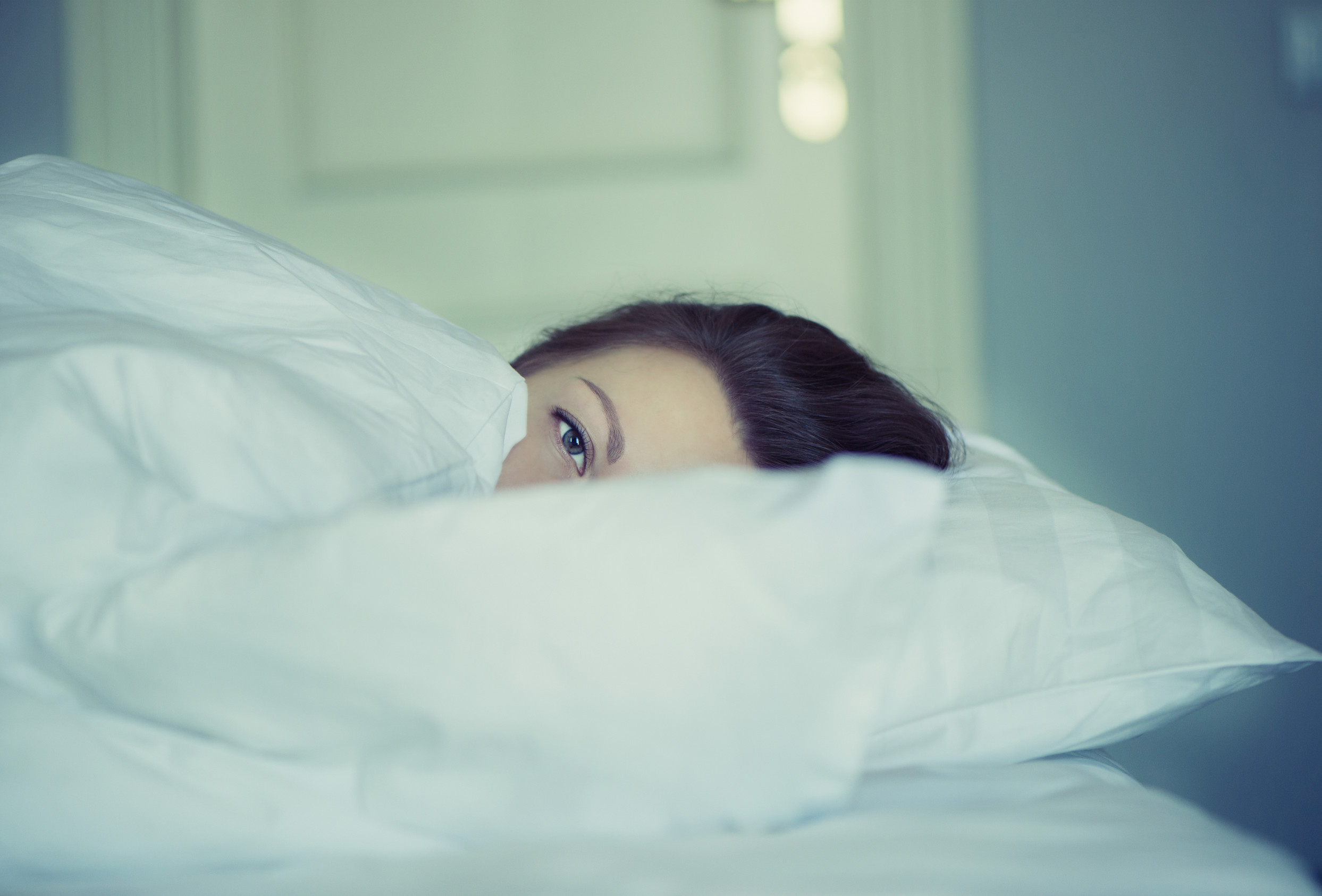
Getting a good night’s sleep isn’t just about how tired you are—it’s about what you do before bed. Many people struggle to fall asleep or wake up feeling exhausted without realizing their evening habits are to blame. From screen time to late-night snacking, certain behaviors can seriously disrupt your sleep cycle. The good news? Making small changes can lead to deeper, more restful sleep. Here are six things you need to stop doing before bed if you want to wake up feeling refreshed.
1. Scrolling on Your Phone or Watching TV
The blue light from your phone, tablet, or TV tricks your brain into thinking it’s still daytime. This suppresses melatonin production, the hormone responsible for making you feel sleepy. Even if you think watching videos or scrolling through social media helps you relax, it actually stimulates your brain and makes it harder to wind down. The more time you spend staring at screens, the longer it will take to fall asleep. Try switching to a book, meditation, or journaling instead—your body will thank you.
2. Drinking Caffeine Too Late in the Day
Caffeine stays in your system for hours, even if you don’t feel its effects right away. Having coffee, soda, or energy drinks in the afternoon or evening can make it difficult to fall asleep, even if you’re exhausted. Many people underestimate how much caffeine disrupts sleep, leading to restlessness and frequent wakeups during the night. If you love a warm drink before bed, try herbal tea or warm milk instead. Cutting off caffeine at least six hours before bedtime can significantly improve your sleep quality.
3. Eating Heavy or Sugary Foods

A late-night snack might seem harmless, but eating too close to bedtime can cause digestive discomfort and disrupt your sleep. Spicy, fatty, or sugary foods can lead to acid reflux, bloating, and blood sugar spikes that keep your body awake. Even healthy snacks like dark chocolate contain caffeine, which can interfere with sleep. If you’re truly hungry before bed, opt for something light and sleep-friendly, like a banana or a handful of nuts. Avoiding heavy meals at least two hours before bedtime can prevent unnecessary sleep disturbances.
4. Bringing Work or Stressful Conversations to Bed
Your bedroom should be a place of relaxation, not a second office or a battlefield for difficult conversations. Checking emails, making to-do lists, or arguing with a partner before bed keeps your mind in a state of stress. High stress levels lead to increased cortisol production, which makes it harder for your body to wind down. Instead, set a firm boundary—no work or stressful discussions at least an hour before bed. Practicing deep breathing, gratitude, or light stretching can help you transition into a restful state.
5. Exercising Too Late at Night

While regular exercise improves sleep, working out too close to bedtime can have the opposite effect. High-intensity workouts elevate your heart rate, body temperature, and adrenaline levels, making it difficult to relax. If you’re doing intense cardio or weightlifting late at night, it could be interfering with your ability to fall asleep. Instead, try finishing workouts at least three hours before bedtime or switch to gentle activities like yoga or stretching in the evening. This helps your body wind down rather than ramp up before sleep.
6. Ignoring a Consistent Sleep Schedule
Your body thrives on routine, and an inconsistent sleep schedule confuses your internal clock. Staying up late one night and trying to “catch up” the next throws off your natural sleep-wake cycle. Even on weekends, drastic changes in bedtime can lead to grogginess and difficulty falling asleep when Monday rolls around. The best way to improve sleep is to go to bed and wake up at the same time every day, even on your days off. A regular sleep schedule trains your body to feel naturally tired at the right time.
A Good Night’s Sleep Starts with Better Habits
If you’re struggling with sleep, your nighttime routine could be the culprit. By eliminating these bad habits, you set yourself up for deeper rest and better mornings. Small changes—like reducing screen time, avoiding late-night caffeine, and keeping a consistent schedule—can make a huge difference. Sleep isn’t just about quantity; it’s about quality.
What’s one habit you’ve changed that helped you sleep better? Share your tips in the comments!
Read More:
Why Some People Are Always Confident (And How You Can Be Too)
Feeling Anxious? These 5 Hidden Triggers Might Be to Blame

Latrice is a dedicated professional with a rich background in social work, complemented by an Associate Degree in the field. Her journey has been uniquely shaped by the rewarding experience of being a stay-at-home mom to her two children, aged 13 and 5. This role has not only been a testament to her commitment to family but has also provided her with invaluable life lessons and insights.
As a mother, Latrice has embraced the opportunity to educate her children on essential life skills, with a special focus on financial literacy, the nuances of life, and the importance of inner peace.
